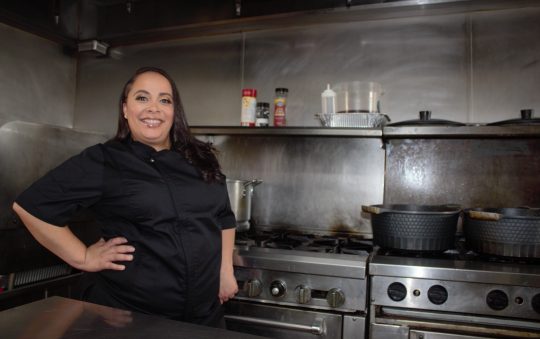
Earlier this week, Los Angeles City Council President Herb Wesson, Jr. announced a public policy highlighting what is believed as the city’s most concerning issues including the advancement of immigrant and civil rights, bridging the digital divide, developing and increasing affordable housing, and the creation of the city’s first municipal bank.
According to Wesson, a recent report found hate crimes have increased by double digits in the state of California with Blacks, Jewish people, and gay men as the primary targets.
With the help of EmbRACE L.A., a program created by Wesson and Councilmember Mitch O’Farrell, the government and Angelenos will be able to have an open conversation on race, ethnicity, diversity, and similar reports on hate crimes negatively affected the community.
“It is time for us to take the training wheels off the EmbRACE L.A. program and we are going to go citywide,” said Wesson.
He went on to announce that the program has received funding from the Community Coalition and will work together to bring the city together.
“We are all one race, the human race,” he said. “What is more important than us fighting not only to save Los Angeles but to save the United States of America. That’s what we are doing.”
The next issue the council president discussed was the importance and creation of affordable housing. Wesson stated an independent commission will be created and will partner with the Los Angeles Chamber of Commerce and labor.
“It is hard to believe that in the city of Los Angeles, individuals cannot afford to live in the homes that they grew up in. So we have to do something to try to address that concern,” Wesson said.”
The independent commission will be designed to come up with ways to make building affordable housing affordable.
Wesson closed his speech by directing the required city departments to inquire into the creation and feasibility of a municipal bank in Los Angeles. This recommendation would allow the cannabis industry to invest in the city and future proceeds will go toward increasing citywide affordable housing.
“Imagine if this is possible to have a bank where its vision statement is to finance building affordable housing,” he said. “Imagine if we had a bank that is focused on working with small business entrepreneurs to give them loans. We cannot bury our heads in the sand on the issue of recreational and medical cannabis legalization, instead we must strive to reasonably regulate the emerging industry while creating opportunities for Angelenos.”






